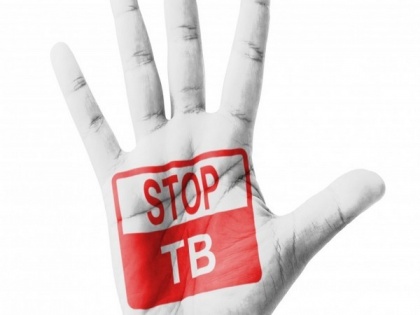This year's theme for World TB Day: 'The Clock is Ticking'
By ANI | Published: March 23, 2021 05:24 PM2021-03-23T17:24:59+5:302021-03-23T17:35:07+5:30
World Tuberculosis Day is observed each year on March 24 to raise public awareness about the devastating health, social and economic consequences of TB, and to step up efforts to end the global epidemic.

This year's theme for World TB Day: 'The Clock is Ticking'
World Tuberculosis Day is observed each year on March 24 to raise public awareness about the devastating health, social and economic consequences of TB, and to step up efforts to end the global epidemic.
'The Clock is Ticking', which is the theme of World TB Day 2021, conveys the sense that the world is running out of time to act on the commitments to end the deadly disease, made by global leaders.
On World TB Day 2021, experts from Paras Hospital, Ujala Cygnus Group of Hospitals, and Columbia Asia Hospital shared some of their inputs.
Dr Arunesh Kumar, HOD, Paras Chest Institute and Sr. Pulmonologist, Paras Hospital, Gurugram spoke about the medication which was released in 2012 to fight the deadly disease.
He said, "After four decades of dormancy in tuberculosis research, two effective and less toxic medicines were finally released in 2012 - Bedaquiline and Delaminid. Bedaquline blocks the mechsms used by the TB bacteria to produce energy, effectively killing it in the process. Thousands of patients across the country are in need of these medicines. Although the government announced that patients will get universal access to Bedaquiline, a lot of them are still denied access."
He further said, "According to authorities, its use has to be carefully monitored to prevent misuse. This is complicated by the fact that it is expensive and we are yet to scale up affordability and access. More recently, a three-drug regimen, consisting of Bedaquline, Pretomd, and Linezolid, showed a 90 percent favorable outcome in treating extensive drug-resistant tuberculosis (XDR TB). The results of the study, which was published in The New England Journal of Medicine, comes as a ray of hope for people suffering from Extensive drug-resistant TB."
Dr Shuchin Bajaj, Founder and Director, Ujala Cygnus Group of Hospitals shed light on the rising number of TB cases worldwide and said "India leads the pack."
He stated, "Although tuberculosis is considered a disease of the past, there has been a resurgence, especially in developing countries across the world. According to estimates by the World Health Orgzation, there are over 10 million new cases in the world. It also added that the epidemic is larger than previously estimated, owing to data from India. 60 per cent of TB cases are concentrated in six countries. India leads the pack, closely followed by Indonesia and China, while Nigeria, Pakistan are not far behind."
Talking about medicines for TB, he continued, "Drug-resistant tuberculosis is particularly hard to treat using medicines that are currently available in the market. Since the drug-resistant variants come in different forms - extensively drug-resistant and multi-drug resistant - patients who are infected are resistant to at least four of the main anti-TB drugs. This is complicated by the fact that rifampicin and isoniazid, two of the most effective anti-TB drugs, have become both ineffective and toxic."
Dr Piyush Goel, Senior Consultant- Pulmonary and Critical Care, Columbia Asia Hospital, Palam Vihar, Gurugram said, "Tuberculosis is a contagious bacterial infection that affects the lungs and can spread to other parts of the body such as the brain and spine. The disease is caused by Mycobacterium tuberculosis and common symptoms are cough, fever, night sweats, and weight loss. The disease spreads from one person to another through the air when an infected person coughs, speaks, or sings. People with HIV infection and/or other immunocompromised health conditions; who became infected with TB bacteria in the last 2 years and/or not treated correctly for TB in the past; those who inject illegal drugs; babies, young children, and the elderly; are at a higher risk of getting infected."
"Detection of TB in the early stages is key to prevention and better treatment outcomes. However, in the past one year, COVID-19 has dealt a serious blow to the screening exercise -- as per a recent report, TB notifications in India dropped by 70 per cent between 10th and 15th week of 2020. The World Health Orgzation (WHO) is correct in determining this year's theme as 'The Clock is Ticking' -- there is an urgent need to address the lag that happened due to COVID-19. Treatment of TB is available -- it is treated with antibiotics while multidrug-resistant (MDR) TB is treated with a 6-drug regimen," he concluded.
World Tuberculosis Day marks the date in 1882 when Dr Robert Koch announced that he had discovered the bacterium that caused TB. This led to opening the way towards diagnosing and curing the disease. Still, TB remains one of the world's deadliest infectious killers. Each day, nearly 4000 lose their lives to TB, and close to 28,000 people fall ill due to this preventable and curable disease.
( With inputs from ANI )
Disclaimer: This post has been auto-published from an agency feed without any modifications to the text and has not been reviewed by an editor
Open in app